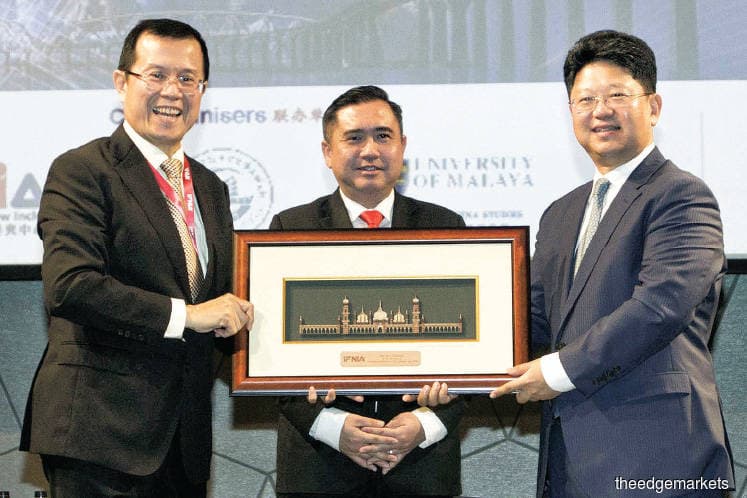
This article first appeared in The Edge Financial Daily on December 7, 2018
KUALA LUMPUR: Transport Minister Anthony Loke has invited state-owned China Ocean Shipping (Group) Co (Cosco) and CRRC Corp Ltd to deepen collaboration with Malaysia, ahead of his visit to China next month.
Loke said yesterday he will be meeting China’s Transport Minister Li Xiaopeng during his visit, as Putrajaya intends to continue engaging with China to advance each other’s economies.
It will include engagements with Cosco to discuss prospects of further collaboration with the company in making Malaysia its major trans-shipment hub, he said.
Loke said collaborating with international shipping lines like Cosco will help create an integrated ecosystem that boosts Malaysia’s competitiveness and economy, besides lowering the cost of imports and exports.
“To make the whole ecosystem work, it’s not just about port cooperation. What we need is a very strong shipping network. Therefore, I would like to invite the Chinese government, in particular Cosco, to make Malaysia [its] major trans-shipment hub in the Southeast Asian region.
“When more international shipping lines come to Malaysia, we will then have direct lines to other countries, and that will bring down the cost of shipping and transportation,” Loke told the press after opening the inaugural International Forum on New Inclusive Asia that was held here yesterday. The forum was co-organised by the Centre for New Inclusive Asia (CNIA), Jinan University of China, and University of Malaya.
In his opening speech, Loke also invited CRRC to double its investment in its rolling stock centre in Batu Gajah, Perak, to make the centre its Asean hub. The existing 400 million yuan (RM241 million) plant commenced operations in April 2015, with an annual capacity of producing 200 carriages as well as overhauling and maintaining 150 vehicles.
While he believes Malaysia-China relations will continue to flourish, Loke said it requires a “wholesome approach” that requires the two governments being open and transparent, enterprises stepping up to the challenges of globalisation, and Malaysia’s workforce equipping themselves with the relevant know-how and skills.
Speaking to The Edge Financial Daily on the sidelines of the event, Professor Shi Yinhong of the School of International Studies at Renmin University of China said he believes Malaysia realises maintaining good bilateral relations is important for both sides.
“Although there have been cancellation of huge projects, there are still a lot of [other] cooperative projects which seem more feasible and effective, and have better profit prospects for both sides.”
On the US-China trade tension, Shi said it is unlikely any fundamental agreement will be achieved at the end of the 90-day ceasefire period, though there could be “a lot of small agreements”. “However, the smaller agreements cannot be sufficient to give the US-China trade war a truce.”